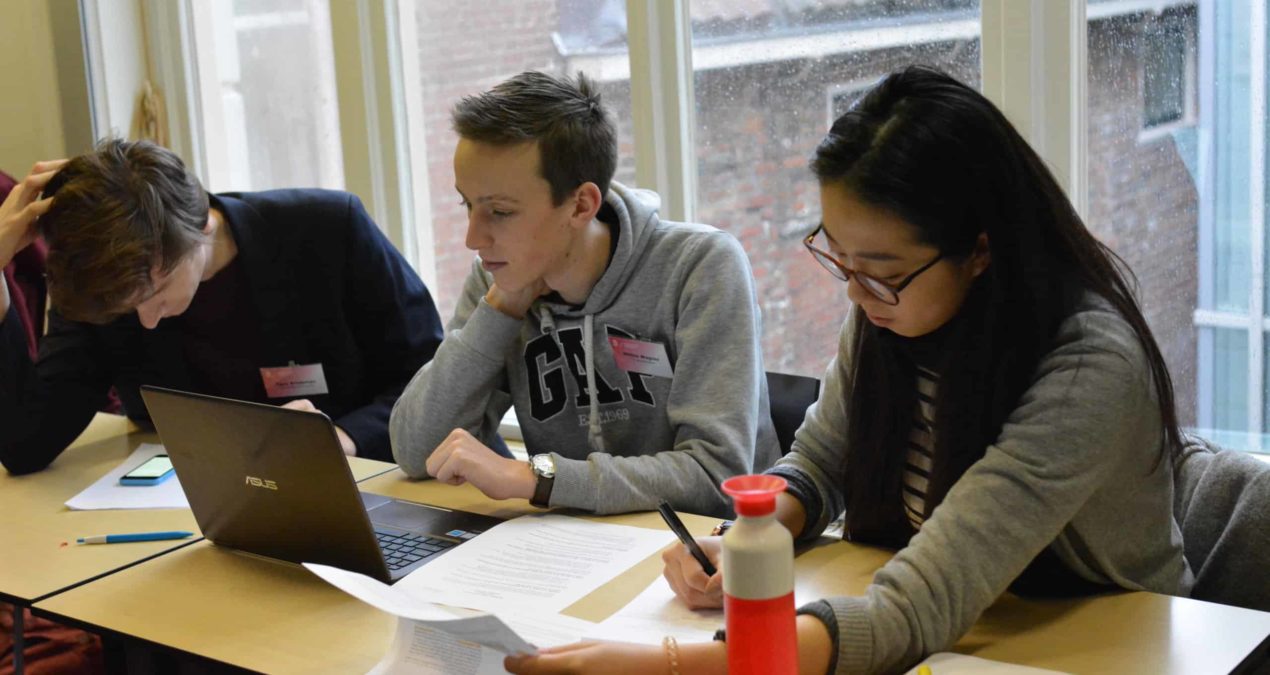KARA ZHANG — Perhaps we can no longer ignore the ills of modernity as our neoliberal society heads towards its inevitable doom, perhaps we are merely over-dramatic adolescents raised on too strong a dose of Millennial exceptionalism. Either way, uncertainty, disagreement and conflict seem to be regular features of Denison life.
Zach Correia ‘20, sophomore editor for The Bullsheet, writes that “campus trends [have led] to the demise of the Denison Community by the division of social groups on campus.” Peter Heft ‘18 maintains that “discourse is dead.”
How are we to survive in such a charged and polarized community?
Earlier this semester, I travelled to the University of Groningen in the Netherlands as a participant in their 2018 Philosophy, Politics, and Economics (PPE) winter school. The series of lectures and discussions centered around this year’s theme: “Uncertainty, Disagreement, and Conflict.”
Here are some thoughts of professors from across the pond on the role of norms, social knowledge, collective obligations and critical dialogue. Read as: how to make stuff socially acceptable, truth is less objective than you think, sometimes it’s okay to be a bystander and tips on getting what you want.
Dr. Frank Hindricks and Dr. Francesco Guala think of social institutions as sets of rules, maintained by the interactions of individuals acting strategically, or in self-interest. According to Hindricks and Guala, “rules are representations in symbolic form of the strategies that ought to be followed in a given game.” What this effectively means is that the rules of institutions (e.g. Denison) derive social power and weight if individuals’ actions reinforce these rules. Only then do rules turn into patterns of behaviours associated with social norms. Think of rules that nobody follows, or norms that are never explicitly imposed. Which rules and norms do your actions perpetuate? Which institutions do your choices reinforce?
Dr. Leah Henderson and Dr. Francesca Giardini are interested in the formation of social knowledge. Henderson emphasizes the importance of critically examining the biases, values and agendas of purportedly objective information (e.g. research based on, say, polling of the student body). Giardini researches the collective, network creation of subjective knowledge (e.g. gossiping about someone’s reputation) and how this can both help and harm cooperation.
What sources are you trusting? Are you responsibly acknowledging the power of information you may hold over others by virtue of your involvements?
Dr. Allard Tamminga formally proves that group obligations do not directly transfer to individuals. This theory is interesting in questions of interference when one is outnumbered or overpowered. It implies that collective groups are their own entities with unique ontological status and moral obligations.
When are you obligated to stand up for your group? When are you excused from defending their honour? What kinds of responsibilities do your groups have by virtue of the power that comes with being a large quantity of individuals?
Finally, Dr. Jan Albert van Laar develops a structure for the processes of persuasion and negotiation that recognizes that sometimes compromises can be justified. For example, a
collaboration with someone you morally disagree may yield results beneficial to all. Or, perhaps
you have irreconcilable differences on matters of principle with someone you live next to. Or,
maybe you are committed to democratic ideals of community. Dr. van Laar maintains that
compromise need not be thought of as the unfortunate outcome of a power struggle in which
someone always loses.
All of this is to suggest that we are not somehow especially challenged by questions of difference in our community. Moreover, there are people who study these things, and, by virtue of lived experience or researched knowledge, have seriously valuable insights to share with us.
Special thanks to the generosity of the Horizon Fund for supporting my trip to the University of Groningen, where I learned about all this and more. Check out the Horizon Fund via myDenison if you are looking to get funding for “enrichment opportunities for the academic and/or co-curricular interests,” excluding internships and off-campus study.

